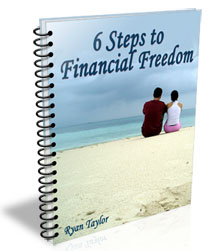No one wants to be on the receiving end of the call or letter telling them they’ve been the victim of identity theft. You certainly don’t want to open your online banking to find a slew of charges that have cleared out your account without your knowledge, or worse, go to make a transaction and find your card maxed out. And yet, very few people take the necessary precautions to stop criminals from stealing their private information. It’s not so much that you’re complacent or lazy; you probably just have no notion of the many ways in which unsavory characters can trick you into giving up the sensitive information needed to steal your identity. But your ignorance could cost you a lot. For that reason, you need to get with the program and learn a few tips and tricks that will make it much harder for hackers and con-artists to get the information required for identity theft.
The first and most obvious consideration is volunteering information. Don’t do it! Just because someone has your phone number and knows where you bank doesn’t mean you should offer up account numbers, your social security number, or any other piece of personal information they request. If someone calls you and says they’re from your bank or credit card company, simply hang up and call the number on your card to confirm. If you call them, you’ll know for certain that they are who you think, whereas anyone could get ahold of your phone number to contact you.
Unfortunately, much more prevalent is online identity theft, and if you don’t know how to protect yourself, you might as well paint a target on your back. For starters, you need to password protect any online account that could hold sensitive information. This includes not only email and online banking, but also any retailers that save your credit card number for future use. In fact, you may not want to provide this information permanently, despite the fact that it makes future orders quicker, just in case their database is hacked. As for passwords, make them hard to crack by using at least eight characters and including letters, numbers, and symbols if possible. And be sure to avoid obvious combinations like your name and birthdate, for example. Finally, don’t use duplicate passwords on various accounts. Simply keep a list somewhere (that it won’t be lost or stolen) if you can’t memorize all of your passwords.
And when it comes to protecting your information out in the real world, there are a few ways to do so. When you receive your credit or debit card simply write “Ask for ID” in the space provided for a signature so that vendors will be prompted to ascertain if the person using the card is you (hopefully). Also, make a habit of perusing any receipt you sign and hand back to the cashier to make sure that your entire card number is not displayed. Most vendors X out all but the last four numbers, so if you see more, simply black them out yourself.
One last note: be careful about your trash. Throwing away statements that contain not only your name and address, but also your card number is like asking anyone willing to hop in a dumpster to steal your identity. Simply spring for a paper shredder to easily avoid this possibility. Most of these tips may seem like common sense, but considering how many people are the victims of identity theft every day, it pays to know how to protect yourself from those who would profit from your ignorance.
Emma Martin writes for Purchase Order Finance which helps small businesses find the working capital they need for big business opportunities.




4:02 pm on December 22nd, 2010 1
Identity theft has become a major, major problem! And living without protection is like living in a crime infested neighborhood and not having protection on your home. You would probably at least have a really good guard dog and a fence right? Well, not protecting your identity today is the equivalent of living in that neighborhood and refusing to even lock your door. It’s so sad that it’s come to this, but there are always tradeoffs in life. Because we want better medical coverage and a nicer car we pay more to protect and insure them.
Likewise, with something as amazing as the World Wide Web there come tradeoffs also. One tradeoff for us having access to almost everything is that others have access to almost everything about us, our information. And that includes our personal information like social security numbers, banking information and even your medical and criminal history.
Luckily there is a lot of information out to help us understand and protect ourselves from these heartless criminals.